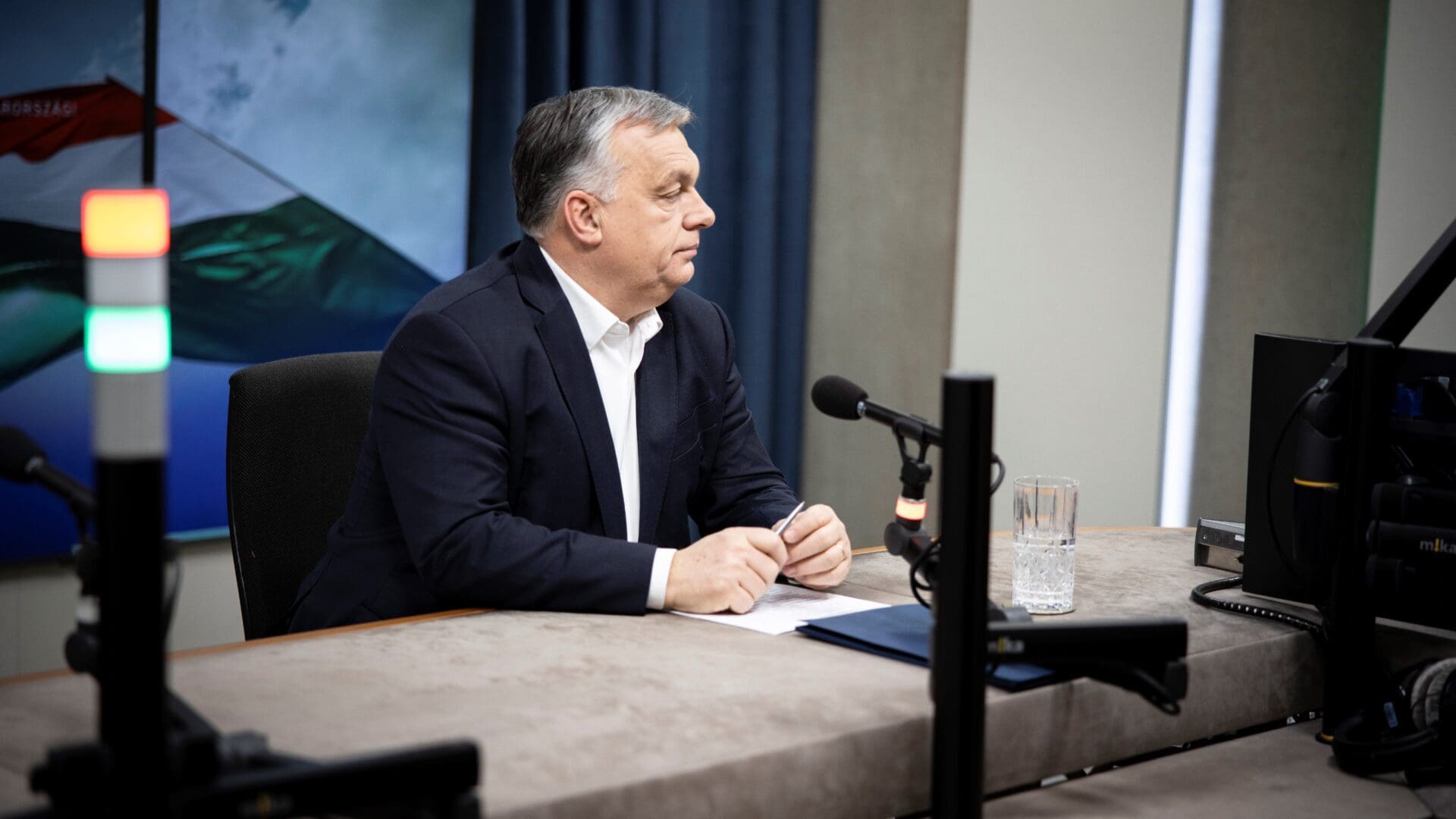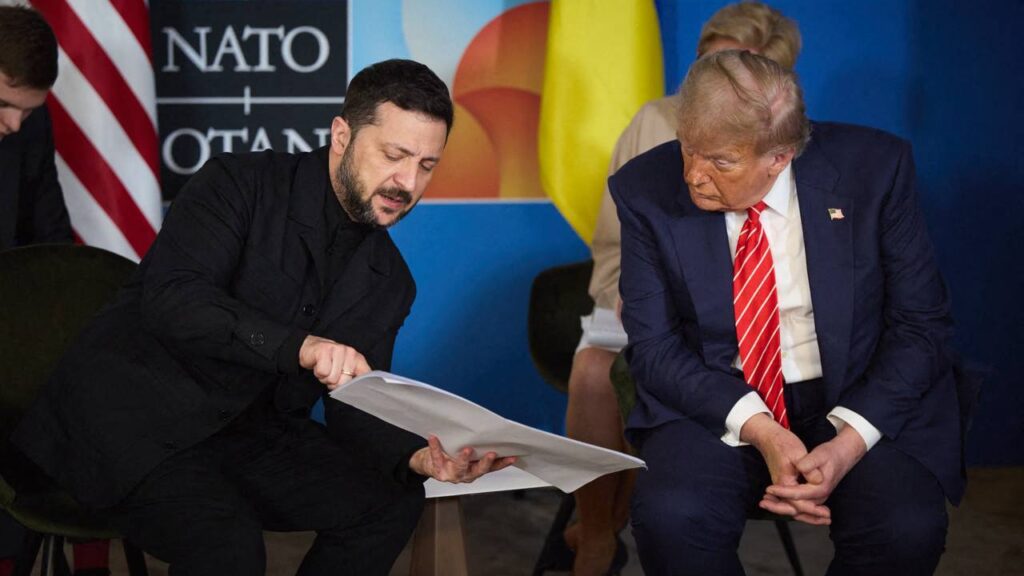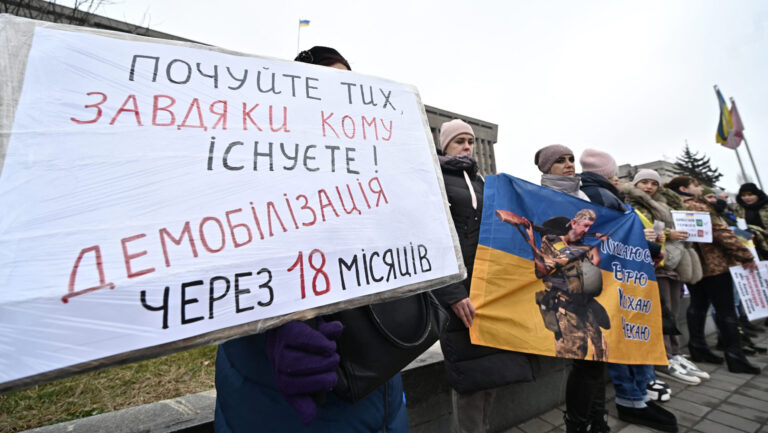Topics covered in the PM’s Friday morning radio interview included the Russo-Ukrainian war, sanctions and their consequences on the Hungarian economy, inflation, and the foreign funding of the Hungarian opposition.
Hungary Will Not Be Dragged into the War
In response to a question on Ukraine having requested fighter jets from the West, and German Chancellor Olaf Scholz authorising the transfer of Leopard 2 tanks, Prime Minister Viktor Orbán recalled in his regular Friday morning interview on public Kossuth radio that Germany first only agreed to send helmets. At the time, Berlin was still of the opinion that sending lethal weapons would mean becoming a party to the conflict. As opposed to that, Germany has now sent armoured cars and the issue of fighter jets has also emerged. Orbán said it is becoming more and more apparent that ‘if you do not put your foot down, you will be dragged into the war.’ He remarked that had the left won the elections last year, Hungary would already be part of the war.
Orbán stressed that the Hungarian people have made it clear in the national consultation process whether they want war or peace. He added that the Hungarian interest first and foremost is to stay out of the conflict. Hungary is doing all it can for peace and will not be drawn into the war, he reiterated, arguing that the war should be localised instead of internationalised.
When asked about the pressure on his government with regard to its position on the war, he said that ‘they are hitting, beating, kicking and biting us’. He said ‘the foreign-funded Hungarian left’ is pro-war, and it is doing its utmost to force the country into the conflict. However, for the government, peace is first. The PM added that basic human morality dictates that there should be a ceasefire and peace negotiations.
Hungarians Oppose Sanctions
In terms of the sanctions, he highlighted that the German economy is expected to suffer a loss of about 175 billion euros in 2023. Based on this data, the government has estimated how hard Hungary will be hit. According to the government’s calculations, the country is expected to lose 3.764 trillion forints (9 billion euros), which equals the total personal income tax that Hungarians pay into the budget. He also explained that the government is not going to block any EU sanctions when they do not affect vital Hungarian interest, but in the case of energy, it is not going to give in. He recalled that Hungary vetoes the sanction on Russian oil, opposed sanctions on natural gas and declared that Hungary will definitely veto any sanctions on nuclear energy.
He stressed that 1.4 million Hungarian people filled in the national consultation questionnaire that asked the populace about their opinion on the sanctions. The PM said that the large number of people who took part in the consultation and the fact that the overwhelming majority said they were against the sanctions ‘counts a lot’ when he is negotiating in the EU, because they clearly demonstrates that it is not just the Hungarian prime minister that has a problem with the sanctions, but a large proportion of Hungarians. He stressed that the Hungarian people want their voices to be heard in Brussels. Viktor Orbán added that in Western Europe, the voice of the people are generally muted, with anti-war voices being supressed, but this is not the case in Hungary.
The ‘Dollar Left’
He also commented on the recently completed reports by Hungary’s services on the foreign funding of the Hungarian left. The PM remarked that the lesson learnt is that there is not only a ‘Dollar Left’, but also a ‘Dollar Media,’ referring to facts that have emerged about close-to-the-left media outlets having received substantial funding from the US. Viktor Orbán noted that the left frequently takes stances and backs ideas that ultimately hurt Hungary, and now it has become clear that they are doing so because they are paid to do it. ‘They represent the interests of their masters in return for money. I hope that after the investigation, we will know who provided the cash. The methodology currently points to the Soros network,’ he suggested, and stated that Hungary should be protected against such interference, possibly even by legislative changes.
When asked about inflation, the PM said it was the ‘public enemy’ of the government. It is a number one concern for Hungarians, and therefore lowering inflation is the government’s top priority. The premier claimed that the cabinet has already ‘given the economy the medicine’ that will help it recover, and that he anticipates inflation to decline in March and return to single digits by December.








